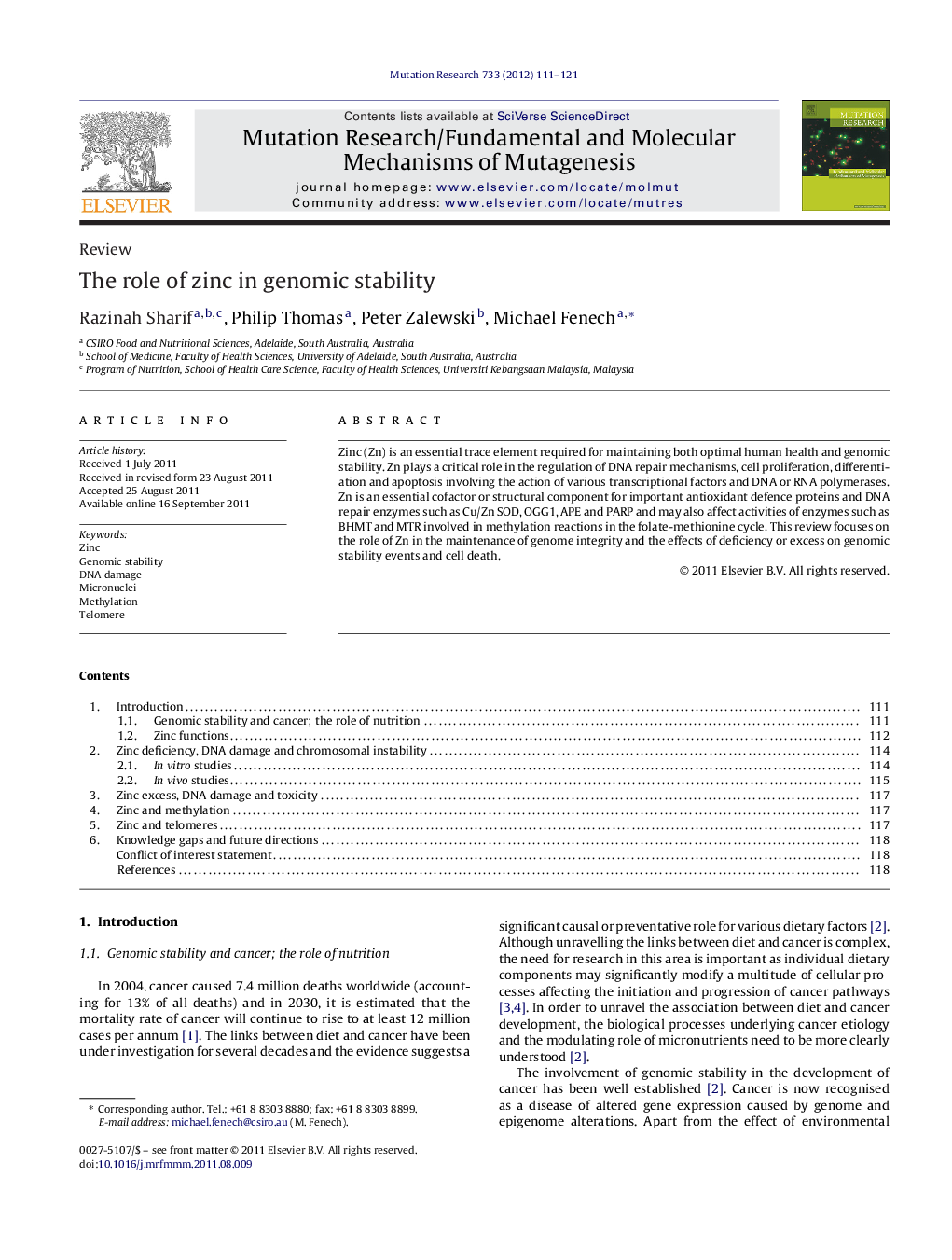| Article ID | Journal | Published Year | Pages | File Type |
|---|---|---|---|---|
| 2146460 | Mutation Research/Fundamental and Molecular Mechanisms of Mutagenesis | 2012 | 11 Pages |
Zinc (Zn) is an essential trace element required for maintaining both optimal human health and genomic stability. Zn plays a critical role in the regulation of DNA repair mechanisms, cell proliferation, differentiation and apoptosis involving the action of various transcriptional factors and DNA or RNA polymerases. Zn is an essential cofactor or structural component for important antioxidant defence proteins and DNA repair enzymes such as Cu/Zn SOD, OGG1, APE and PARP and may also affect activities of enzymes such as BHMT and MTR involved in methylation reactions in the folate-methionine cycle. This review focuses on the role of Zn in the maintenance of genome integrity and the effects of deficiency or excess on genomic stability events and cell death.
► Zinc is required for maintaining genomic stability. ► Zinc plays a critical role in the regulation of DNA repair mechanisms, cell proliferation, differentiation and apoptosis. ► Zinc is an essential cofactor for important antioxidant defence proteins, DNA repair enzymes and enzymes involved in the folate-methionine cycle. ► This review focuses on the role of Zinc in the maintenance of genome integrity and the effects of deficiency or excess on genomic stability events.
